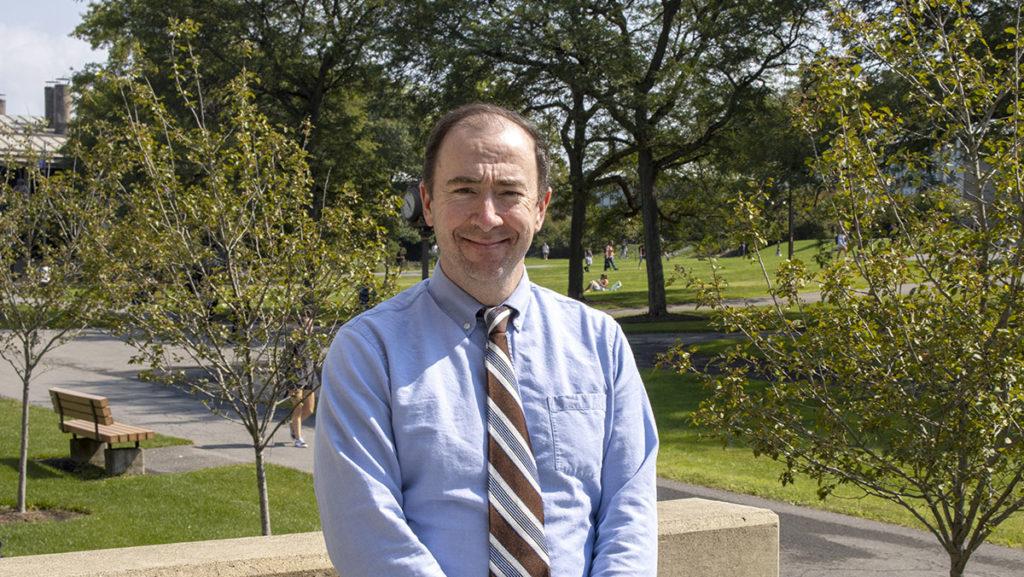As president of the Ithaca College chapter of the American Association of University Professors (AAUP), I have been involved in recent conversations about the concerns faculty are facing, both here and at other area colleges and universities, as so many institutions return to on-campus instruction. Not surprisingly, one significant concern in the face of the ongoing pandemic is safety: the safety of both the campus community and of vulnerable friends and family members.
Almost invariably, from the perspective of AAUP chapters in our area, the health and safety of our communities are best protected by simple and clear COVID-19 policies that err on the side of caution. Such policies have not, however, uniformly characterized recent institutional responses to the pandemic across our region.
For instance, Syracuse University began its academic year without — and still technically does not have — a campus-wide indoor mask mandate. Mask usage is instead determined by a color-coded alert system, and the thresholds for moving from one color/alert level to the next are obscure. A simple, consistent policy stipulating that masks must be worn in most indoor spaces would go a long way toward alleviating a good deal of anxiety and toward protecting the health of campus community members.
Here in Ithaca, Cornell University went too far in a different direction this August when, as reported by Risa Lieberwitz, Professor of labor and employment law in the School of Industrial and Labor Relations and Cornell AAUP chapter president, in the Cornell Daily Sun, the university refused to allow faculty to request that their classes be taught in a remote-instruction format even if that request was “premised on the need for a disability accommodation.” While certainly very clear, this policy is at best incautious and at worst, as Lieberwitz suggests in her piece, a possible violation of the Americans with Disabilities Act. Following widespread faculty criticism, the university shifted its stance in practice, but as of the publication date of Lieberwitz’s article, Cornell had not formally rescinded the policy.
Ithaca College has avoided many of these difficulties by being, on the whole, both active and clear in most of the areas that matter the most. The college was very early with its student vaccine mandate in the spring, and equally early with its very simple and effective statement on indoor mask usage, after the astonishing transmissibility of the delta variant became plainly known.
My own perspective, as both a faculty member for over 16 years and as the parent of a child who is too young to be vaccinated for COVID-19, however, is that there are some aspects of the college’s COVID-19 policy that could stand to be revised further or clarified. For example, while vaccines are encouraged for faculty and staff, they are not absolutely required as they are at Syracuse, New York University and many other New York state institutions. The absence of such a requirement here remains puzzling.
The college’s contact tracing policy, additionally, does not provide for the notification of all classmates and instructors of a student who tests positive for the virus, even if that student was present in class immediately prior to the positive test. Syracuse does provide such notification, yet does so in a way that protects the privacy of COVID-positive students.
Finally, it would be helpful explicitly to allow faculty a significant degree of latitude in adjusting instructional modalities in response to the changing health profiles of individual classes, provided that this can be done in a way that does not compromise students’ privacy.














